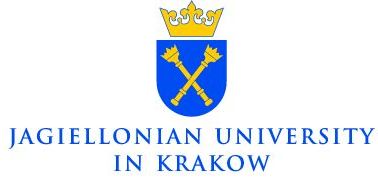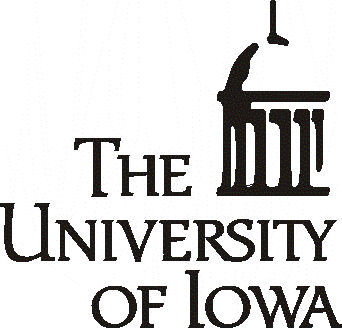Workshops
Workshop no 1 on Contact Mechanics
The workshop that summarized the up-to-date progress of the project took
place at the Institute of Computer Science,
Jagiellonian University in Krakow, ul. Lojasiewicza 6 on November 27-28, 2013.
Workshop announcement
Workshop dates and location:
November 27, 2013, room 0174, 8.00 am - 12.00 pm
November 28, 2013, room 1177, 8.00 am - 12.00 pm
Plan of the workshop:
| Wednesday, November 27, 2013 | Thursday, November 28, 2013 | |
|---|---|---|
| 8:00-8:30 | Anna Ochal | Anna Kulig |
| 8:30-9:00 | Paweł Szafraniec | Piotr Kalita |
| 9:00-9:30 | Yunxiang Li | Jiangfeng Han |
| 9:30-10:00 | Coffee Break | Coffee Break |
| 10:00-10:30 | Tomasz Janiczko | Cong Zheng |
| 10:30-11:00 | Krzysztof Bartosz | Yuanjie Yu |
| 11:00-11:30 | Sylwia Barnaś | Leszek Gasiński |
| 11:30-12:00 | Coffee and Discussion | Coffee and Discussion |
List of participants:
Sylwia Barnaś
Krzysztof Bartosz
Marcin Ciecholewski
Jacek Cyranka
Jerzy Czepiel
Zdzisław Denkowski
Leszek Gasiński
Tomasz Janiczko
Jiangfeng Han
Piotr Kalita
Liliana Klimczak
Marta Kornafel
Anna Kulig
Yunxiang Li
Mateusz Matejczyk
Stanisław Migórski
Anna Ochal
Justyna Ogorzały
Mircea Sofonea
Tomasz Służalec
Paweł Szafraniec
Yuanjie Yu
Cong Zheng
Talks and their abstracts:
| Speaker | Title |
|---|---|
| Abstract | |
| Sylwia Barnaś | Stationary flow of the electrorheological fluid with frictional boundary conditions (joint work with Stanisław Migórski and Piotr Kalita) |
| We consider the stationary two dimensional incompressible Navier-Stokes flow of the electrorheological fluid with multivalued frictional boundary condition. We present the variational formulation for our problem and prove the theorem on the existence of weak solution. We will work with the subdifferential in the sense of Clarke for locally Lipschitz functions and with variable Sobolev spaces. | |
| Krzysztof Bartosz | Fully discrete error estiamtes for a dynamic contact problem with nonmonotone slip-rate dependent friction (joint work with Weimin Han and Tomasz Janiczko) |
| We consider a dynamic contact problem with nonmonotone slip-rate dependent friction and formulate a mathematical model for this problem, which takes a form of subdifferential inclusion of nonmonotone type. Moreover we considere a semidiscrete and a fully discrete approximation of its solution. Our goal is to obtain an error estimates for a fully discrete one. | |
| Leszek Gasinski | Variational-hemivariational approach to a quasistatic viscoelastic problem with normal compliance, friction and material damage (joint work with Anna Ochal and Meir Shillor) |
| This work studies a model for quasistatic frictional contact between a viscoelastic body and a reactive foundation. The constitutive law is assume to be nonlinear and contains damage effects modeled by a parabolic inclusion. Contact is described by the normal compliance condition and by a subdifferential frictional condition. A variational-hemivariational formulation of the problem is provided and the existence and uniqueness of its weak solution is proved. The proof is based on a surjectivity result for pseudomonotone coercive operators and a fixed point argument. | |
| Jiangfeng Han | Weak solvability of quasistatic viscoelastic and viscoplastic contact problems with adhesion (joint work with Stanisław Migórski) |
| In this talk, we consider two quasistatic frictional contact models with adhesion. In both models the contact is described by normal compliance in such a way that the penetration is limited and restricted to unilateral constraint, the friction is given by a subdifferential boundary con dition and the adhesion between contact surfaces is taken into account. In the first model the material is viscoelastic and in the second model the material is viscoplastic. We provide variational formulations for the mechanical prob lems and prove the existence of a unique weak solution to each model. The proofs are based on arguments of time-dependent variational-hemivariational inequalities, differential equations, and a fixed point theorem. | |
| Tomasz Janiczko | Fully discrete error estiamtes for a dynamic contact problem with nonmonotone slip-rate dependent friction (joint work with Weimin Han and Krzysztof Bartosz) |
| We consider a dynamic contact problem with nonmonotone slip-rate dependent friction and formulate a mathematical model for this problem, which takes a form of subdifferential inclusion of nonmonotone type. Moreover we consider a semidiscrete scheme of its solution. Our goal is to obtain an error estimates for this scheme. | |
| Piotr Kalita | Global attractor for parabolic problem with subdifferential boundary conditions (joint work with Grzegorz Łukaszewicz) |
| We present a formalism of multivalued semiflows and a new abstract result that establishes the equivalent conditions for the multivalued semiflow to have a global attractor. Then we prove that the required conditions: strong-weak uppersemicontinuity with respect to initial data and the so called flattening condition hold for the problem governed by a heat equation with nonmonotone and multivalued boundary condition. In consequence we establish the global attractor existence for the underlying evolution hemivariational inequality. | |
| Anna Kulig | Continuous dependence results for second order nonlinear evolution inclusions with a Volterra-type operator |
| The talk will briefly describe a problem of second order evolution inclusions involving Volterra-type integral operator which is considered within the framework of an evolution triple of spaces. It will focus on a theorem on the continuous dependence of the solution to the inclusion with respect to the operators involved in the problem. | |
| Yunxiang Li | A quasistatic frictional contact problem with damage involving viscoelastic materials with short memory (joint work with Stanisław Migórski and Jiangfeng Han) |
| We consider a mathematical model which describes the frictional contact between a deformable body and a foundation. The process is assumed to be quasistatic and the material behavior is described by a viscoelastic constitutive law with damage. The frictional contact is modeled with subdifferential boundary conditions. we assume that the tangential shear on the contact surface is given as a nonmonotone and possibly multivalued relation of the tangential velocity, and the the normal component of the stress is also described by multivalued relation of the normal component of the velocity. we also assume that the damage affects only the elastic behavior of the material and does not affects its viscosity. The evolution of the damage field is described by a diffusion differential inclusion. We derive the variational formulation of the problem which is a coupled system of an elliptic hemivariational inequality for the velocity field and a parabolic variational inequality for the damage field. Then we prove the existence of a unique weak solution to the model. The proof is based on arguments of time-dependent stationary inclusion, a classical existence and uniqueness result on parabolic inequalities and a fixed point theorem. | |
| Anna Ochal | Dynamic viscoelsctic problem with temperature, friction and damage (joint work with Leszek Gasiński) |
| In the talk we will present a model for dynamic frictional contact between a viscoelastic body and a foundation. The viscoelastic constitutive law includes a temperature efect described by the parabolic equation with the subdifferential boundary condition and a damage effect described by the parabolic inclusion with the homogenous Neumann boundary condition. Contact is bilateral and is described by the subdifferential frictional condition. The variational formulation of the problem leads to a system of hyperbolic hemivariational inequality for the displacement, the parabolic hemivariational inequality for the temperature and parabolic variational inequality for the damage. The existence of a unique weak solution is proved by using recent results from the theory of hemivariational inequalities and variational inequalities, and a fixed point argument. | |
| Paweł Szafraniec | Dynamic nonsmooth frictional contact problems with damage in thermoviscoelasticity |
| In this paper we prove the existence and uniqueness of the weak solution for a dynamic thermoviscoelastic problem describing contact problem between the body and foundation. The process is dynamic, the material behaviour is described by nonlinear viscoelastic law, strongly coupled with the thermal effects. The contact is modeled by nonmonotone subdifferential boundary conditions. The mechanical dam age of the material is described by a parabolic equation. We use recent results from the theory of hemivariational inequailities and fixed point theorems. | |
| Yuanjie Yu | Rothe method for evolution variational-hemivariational inequalities (part 2) |
| In this talk we show recent results that we use Rothe method for evolution variational- hemivariational inequalities in Contact Mechanics. The presentation focuses on three aspects: First we give the basic concepts of variational-hemivariational inequalities. Then we present the Rothe problem and the discretion formulation. Finally we report existence and some estimate. | |
| Cong Zheng | Rothe method for evolution variational-hemivariational inequalities (part 1) |
| In this talk we show recent results that we use Rothe method for evolution variational- hemivariational inequalities in Contact Mechanics. The presentation focuses on three aspects: First we give the basic concepts of variational-hemivariational inequalities. Then we present the Rothe problem and the discretion formulation. Finally we report existence and some estimate. | |
Workshop no 2 on Contact Mechanics
The final workshop that summarized the up-to-date progress of the project took place
at Université de Perpignan Via Domitia on June 10-12, 2015.
It was organized by The Laboratory of Mathematics and PhySics (LAMPS) of the University of Perpignan Via Domitia.
The name of the workshop was Perpignan’s Days on Applied Mathematics
The lectures took place in room P114 of the Institut Franco-Catalan Transfrontalier building situated on the main campus of UPVD.
Workshop announcement







